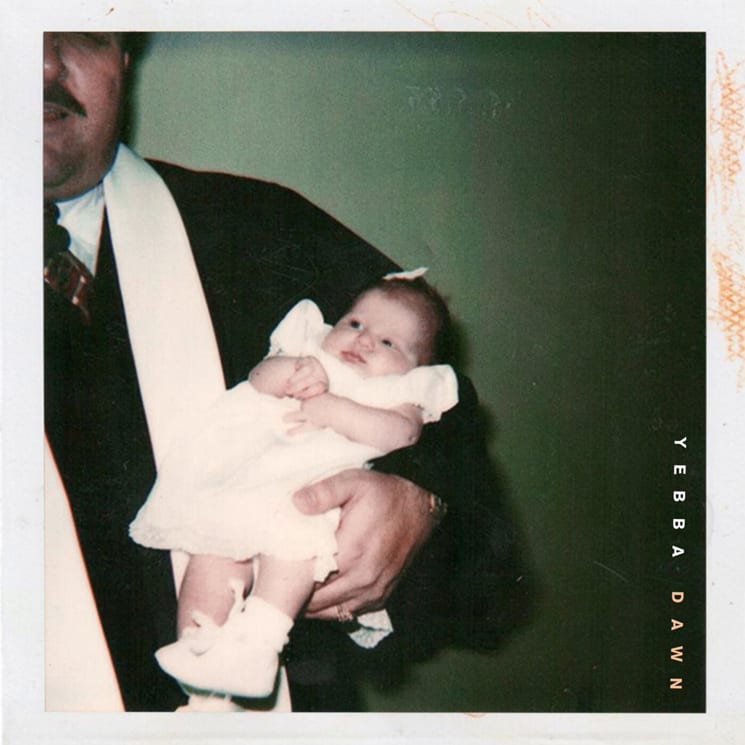Yebba has an extraordinary gift. This much has been evident since the moment her 2016 Sofar NYC performance, a haunting delivery of her song "My Mind," went viral. Since then, armed with just a handful of material, she's captured the attention of everyone from Ed Sheeran to A Tribe Called Quest and left millions of listeners eagerly anticipating her studio debut. Such high expectations can be daunting, but on Dawn, Yebba performs with the self-assurance of an artist with nothing to prove.
Named after her late mother, who died by suicide shortly after that breakthrough performance in New York, Dawn is a brave and incredibly vulnerable tale of loss, grief, and healing. Personal and purgative, it plays like the pages of Yebba's diary; a private reflection where we, the listeners, play the role of bystanders. She opens the album with "How Many Years," a stirring intro on which the Arkansan singer weathers the ebbs and flows of her grief.
Yebba embraces each emotion with raw candor, sifting through anger and resentment on "Louie Bag" (featuring Missouri spitfire Smino), and finding respite from her pain on the dance-tinged "Love Came Down" (which features co-production from Montreal's Kaytranada). "October Sky," the album's centrepiece, is an engrossing piece of storytelling where Yebba recalls childhood memories of launching bottle rockets — leftover experiments from the high school science class her mother taught — into the autumn air.
Mark Ronson handles the bulk of the production on Dawn, and he and Yebba continue to be a formidable team. While it's reductive to compare her to Adele or Amy Winehouse, Ronson does pull whispers of the work he's done with those two artists out of Yebba's performance, especially on the hip-hop leaning standout "Far Away" (featuring A$AP Rocky) and the punchy, menacing revenge fantasy "Boomerang."
But of course, the crown jewel on this album is Yebba's remarkable delivery. Vocally, she is limitless; there is no sonic challenge too great. Throughout Dawn, she exhibits wit and exemplary control and the blurred genre lines on the album are her playground. She can draw emotional, gospel-tinged growls from her gut at will; brighten and bend her voice around a glossy pop groove with ease; and, on a dime, can pull back and tip toe onto delicate ballads like "Paranoia Purple," the album's tear-jerking closer. Yebba has an enveloping voice, the kind one could happily get lost in.
(RCA)Named after her late mother, who died by suicide shortly after that breakthrough performance in New York, Dawn is a brave and incredibly vulnerable tale of loss, grief, and healing. Personal and purgative, it plays like the pages of Yebba's diary; a private reflection where we, the listeners, play the role of bystanders. She opens the album with "How Many Years," a stirring intro on which the Arkansan singer weathers the ebbs and flows of her grief.
Yebba embraces each emotion with raw candor, sifting through anger and resentment on "Louie Bag" (featuring Missouri spitfire Smino), and finding respite from her pain on the dance-tinged "Love Came Down" (which features co-production from Montreal's Kaytranada). "October Sky," the album's centrepiece, is an engrossing piece of storytelling where Yebba recalls childhood memories of launching bottle rockets — leftover experiments from the high school science class her mother taught — into the autumn air.
Mark Ronson handles the bulk of the production on Dawn, and he and Yebba continue to be a formidable team. While it's reductive to compare her to Adele or Amy Winehouse, Ronson does pull whispers of the work he's done with those two artists out of Yebba's performance, especially on the hip-hop leaning standout "Far Away" (featuring A$AP Rocky) and the punchy, menacing revenge fantasy "Boomerang."
But of course, the crown jewel on this album is Yebba's remarkable delivery. Vocally, she is limitless; there is no sonic challenge too great. Throughout Dawn, she exhibits wit and exemplary control and the blurred genre lines on the album are her playground. She can draw emotional, gospel-tinged growls from her gut at will; brighten and bend her voice around a glossy pop groove with ease; and, on a dime, can pull back and tip toe onto delicate ballads like "Paranoia Purple," the album's tear-jerking closer. Yebba has an enveloping voice, the kind one could happily get lost in.
